Stars Show Support For ‘The Smell Of Money,’ Doc Exposing North Carolina’s Hog Waste Horrors
- Oops!Something went wrong.Please try again later.

In eastern North Carolina, there are two types of rainfall. One kind descends from the heavens; the other emanates from a more terrestrial source — fetid cesspools of hog waste.
Fuchsia-colored ponds dot the landscape of Duplin County and surrounding areas — lined pits that retain millions of gallons of pig feces and urine. And when those ponds approach overflow, the waste is sprayed onto nearby fields. Those who live near these farms – mostly people of color of limited economic means – say the slime rains upon them in pink-hued beads. And then there is the stench.
More from Deadline

“A beautiful sunny day and all of a sudden you’re starting to feel droplets coming down,” Duplin Co. resident Elsie Herring says in the documentary The Smell of Money. “And then you realize it stinks. It’s forced on us… It burns your nostrils, makes your eyes water, and you start slobbering and your nose starts running.”
Director Shawn Bannon says he felt it too as he spent time in eastern North Carolina making his documentary.

“When we were filming there, I had migraines like I’ve never had in my life where I totally could not film at all. I ended up getting a special migraine prescription to even finish this movie,” he said at a recent Q&A in Santa Monica, Calif. “The smell is completely unbearable. It makes you feel sick, and you can’t escape it. Here, I might be able to go lay down in a room, but there, there’s nowhere to go. You’re always going to smell it. You just suffer and suffer and suffer.”
North Carolina has become one of the biggest pork-producing states in the U.S., with about 10 million pigs raised for slaughter each year. Those hogs generate over 10 billion gallons of waste a year. Most of the hogs are penned inside CAFOs – Concentrated Animal Feeding Operations – their waste sluicing into open-air lagoons next to the barns.
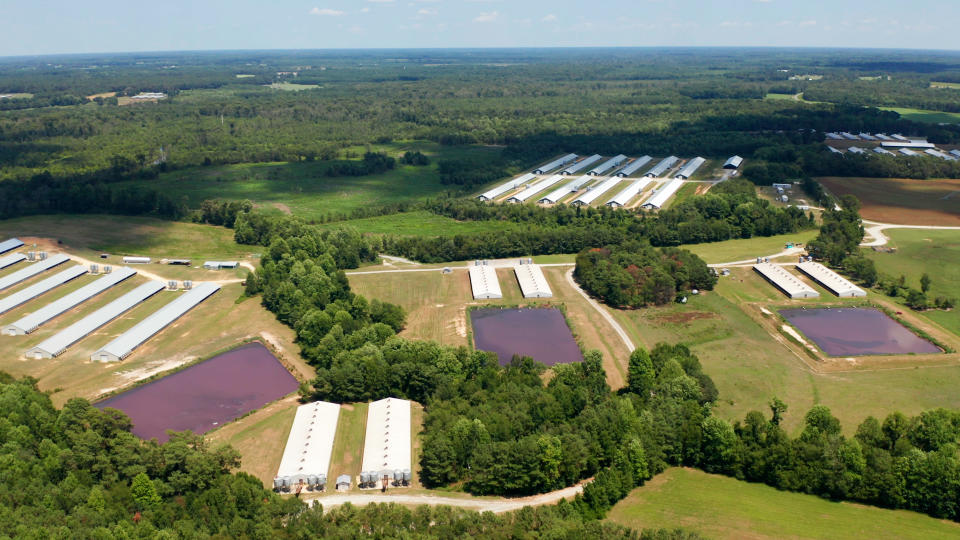
“North Carolina is one of the only states,” the film notes, “where it is legal to spray untreated hog waste into the air.”
The biggest pork producer in North Carolina – and the world – is Smithfield Foods, a division of Chinese conglomerate WH Group. Smithfield and its subsidiaries raise hogs on company-owned farms or contract other farmers to raise swine; the company “processes” up to 36,000 pigs per day at its Tar Heel, N.C. factory, considered the biggest pig slaughterhouse in the world. As a multi-billion-dollar operation and a major employer in the state, it enjoys a cozy relationship with lawmakers, the film asserts.
“In North Carolina, a lot of the politicians actually work in the industry as well,” documentary producer Jamie Berger said at the Q&A. “There are people in office — elected officials — who also own factory farms or otherwise make money directly through the industry in addition to getting their campaigns completely financed by the pork industry. So, there are so many layers of that system of power and the pork industry has its hands in every single one.”
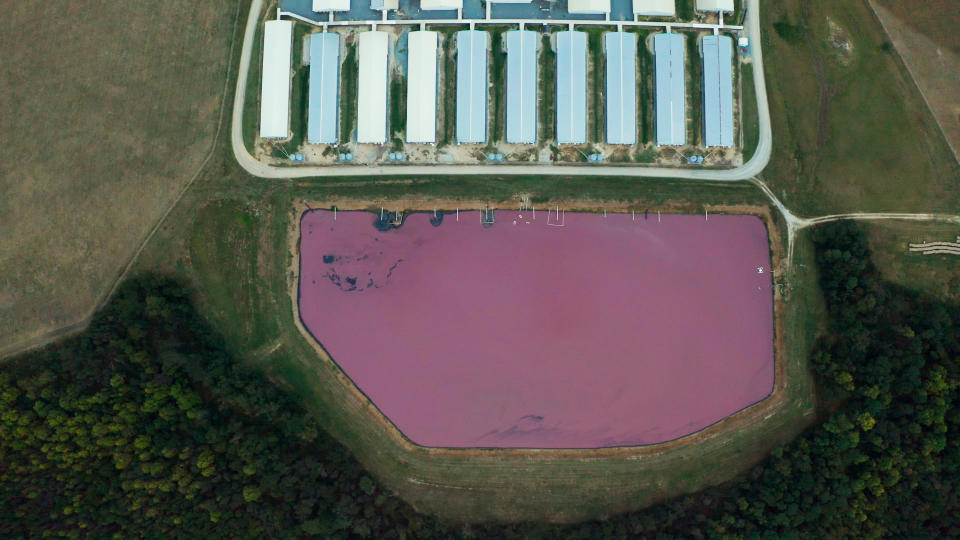
According to the Environmental and Energy Study Institute, a nonprofit “founded by a bipartisan group of members of Congress,” the impact on people living near pig CAFOs goes well beyond merely inhaling unpleasant odors.
“The system of waste disposal on large, industrial farms leads to health concerns for local residents including asthma, high blood pressure, nausea, and exposure to antibiotic-resistant bacteria,” the EESI wrote in 2018. “In North Carolina, these impacts fall disproportionately on people of color.”
A blog post from Duke University’s Nicholas School of the Environment notes another impact on communities of color: “The proximity of the swine farms in many cases lower the property values of homes to almost nothing.”

Executive producers Travon Free and Martin Desmond Roe said the scent of environmental racism that hangs over the story motivated them to become involved in the film. They are releasing The Smell of Money through their company The Unreasnble.
“This would never happen to an affluent white community. It just would never happen,” Free told the audience at the screening. “It’s so obviously blatantly wrong and for decades it’s been only happening to the same people… It is very clearly these white farmers [who] get to spray shit on these Black people and the people who can stop it are the ones profiting from it.”
Roe added, “The solution is to stop spraying shit on people. It’s just common human decency is the solution here. [Put] the field somewhere else. There are so many possible solutions that don’t bankrupt companies that make billions of dollars of profit. There’s just basic humanity that is being ignored.”
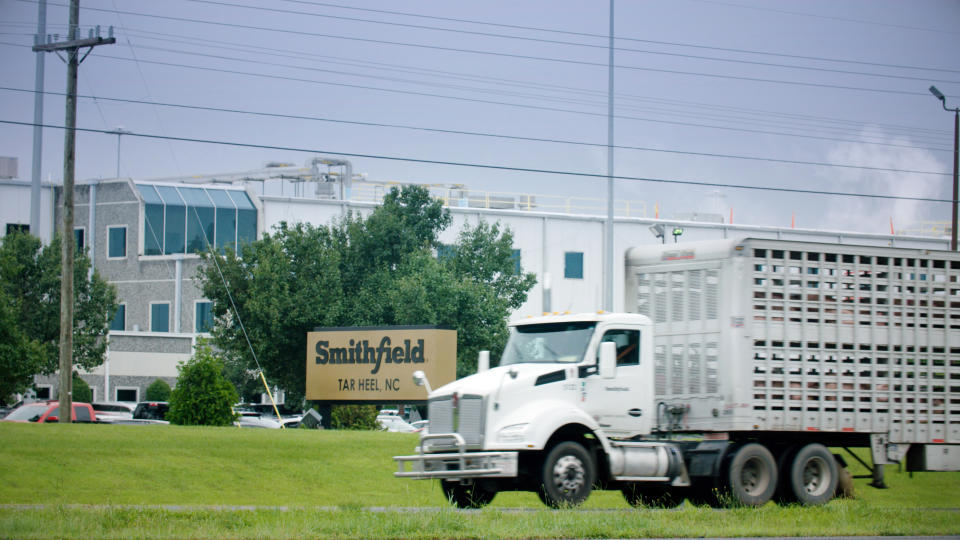
(Smithfield’s website includes a 2017 annual sustainability report that notes the company embarked on “A first-of-its-kind manure-to-energy project to harvest biogas from manure lagoons with the potential to produce about 2.2 billion cubic feet of natural gas.” Beyond that, there is nothing apparent on the site that refers to odor mitigation or other ways to address the impact of hog lagoons on neighbors).
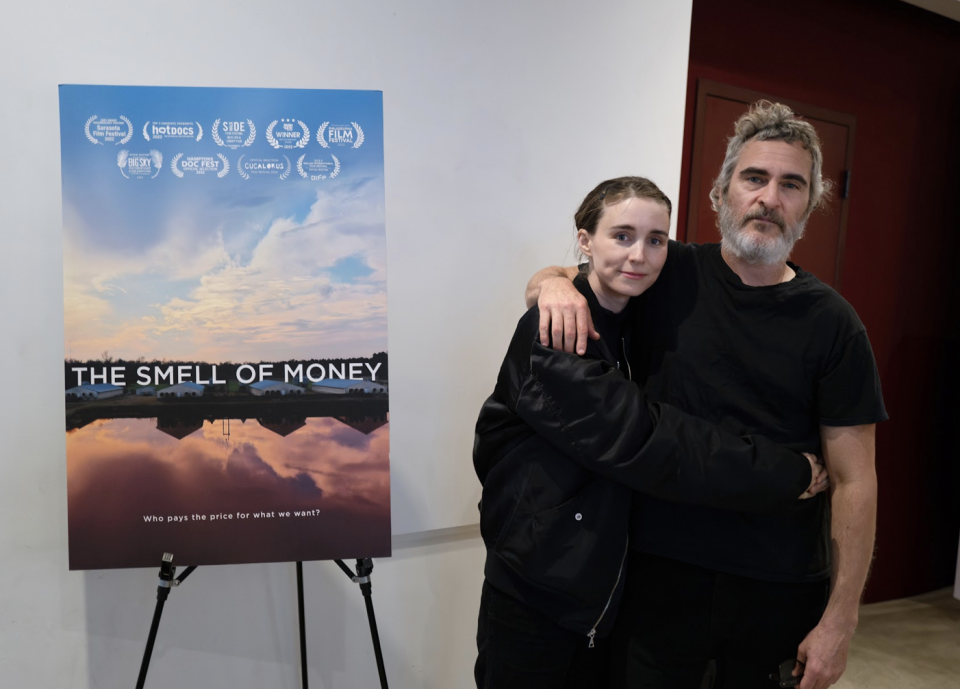
The Smell of Money has gained support from leading Hollywood figures. Actress Kate Mara is among the executive producers of the film. Her sister, Rooney Mara and Rooney Mara’s partner Joaquin Phoenix, introduced the screening at the Laemmle Monica complex in Santa Monica.
Kate Mara has shared numerous posts about the film with her nearly half million Instagram followers, including one post reading, “We are so excited to share this film and for you to meet the people of Eastern North Carolina whose lives have been impacted by living next to hog farms for decades.”
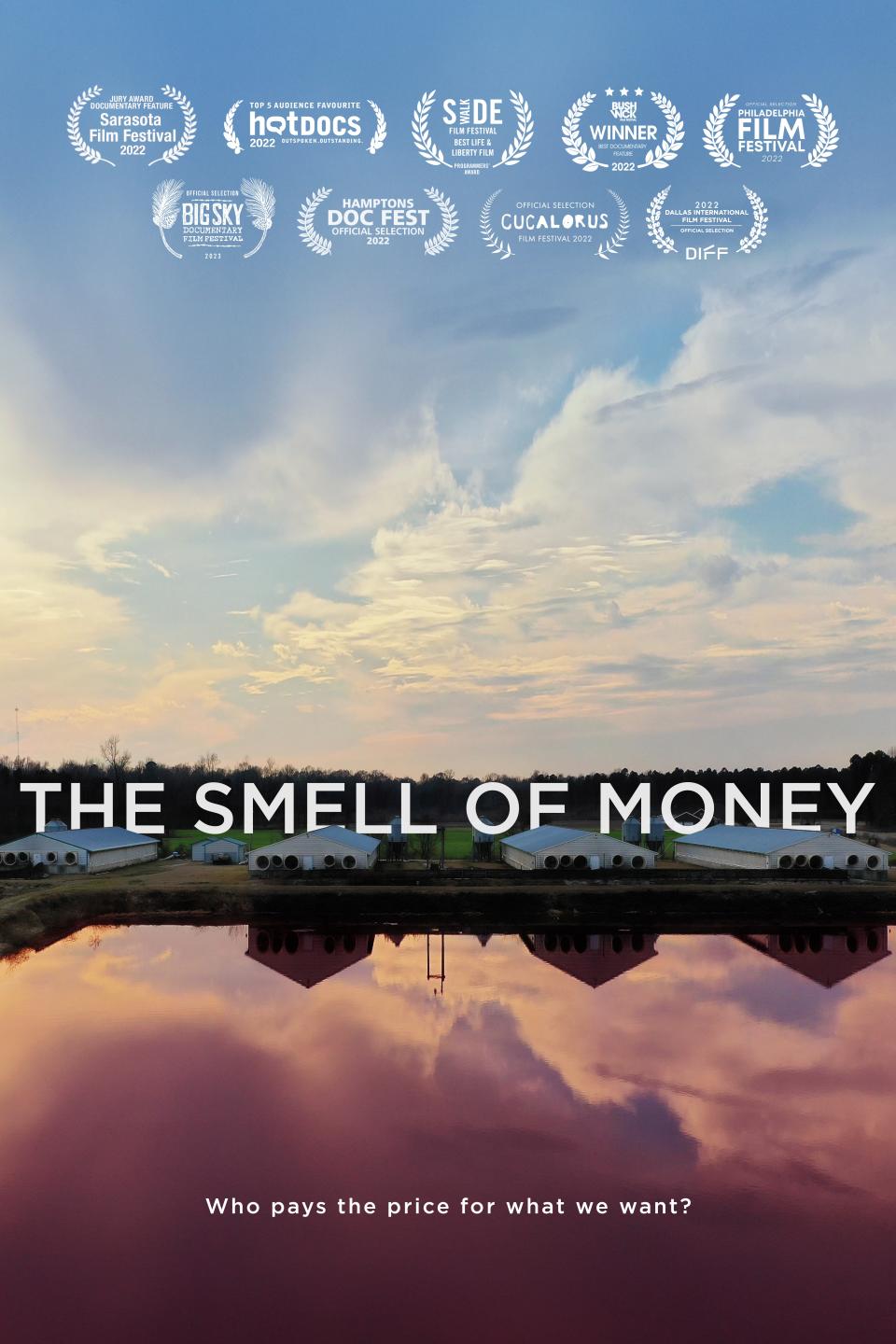
The Smell of Money is playing at the Angelika Village East in New York through Thursday. Over the weekend, musician Joan Jett hosted a Q&A for the film there. The documentary is set to play from Nov. 3-9 at theaters in Juneau, Alaska and Yakima, Wash. and from Nov. 24-30 in Ottawa, Ontario. Additional single-day screenings are scheduled for this Wednesday in Asheville, N.C. and Moorehead City, N.C.; as well as next month at Columbia University in New York, Cambridge University in England and elsewhere.
Hundreds of North Carolina residents who live near waste lagoons have sued Smithfield, winning judgments totaling millions of dollars. But the suits don’t always go the way of plaintiffs. According to a report by NationalHogFarmer.com, in August a federal judge dismissed claims against Smithfield Foods and its subsidiary Murphy-Brown, which accused the companies of spraying “muck” from hog lagoons onto neighboring properties and soiling roads with “liquid or juice coming out of defendants’ trucks.”
In response to a 2018 judgment in a suit against the company, Smithfield issued a statement saying, “These lawsuits are an outrageous attack on all animal agriculture (not only hogs, but poultry, cattle, etc.), rural North Carolina and thousands of independent family farmers who own and operate contract farms… From the beginning, the lawsuits have been nothing more than a money grab by a big litigation machine.”
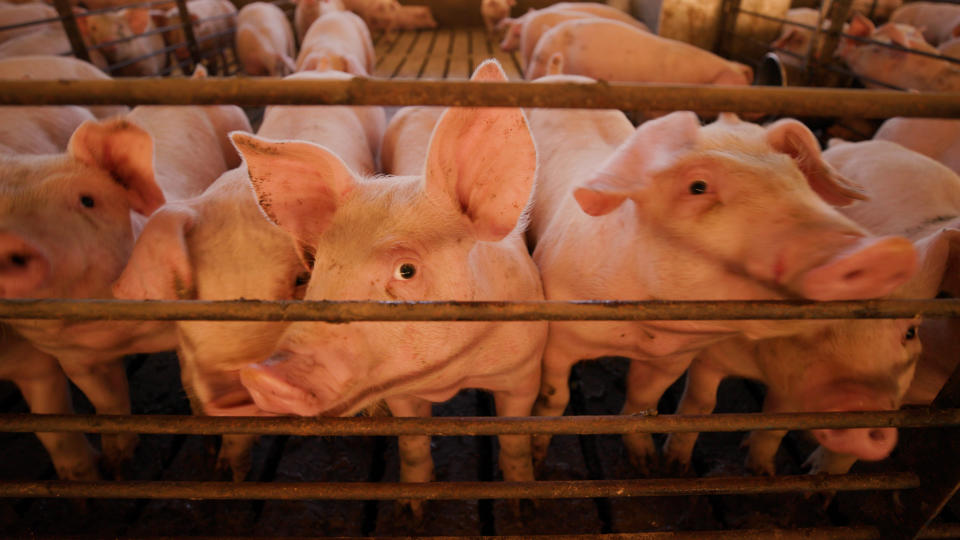
Tom Butler, a North Carolina hog farmer who has acted as a neutral witness in lawsuits, says companies like Smithfield can do more to mitigate the impact of hog waste on people who live near lagoons.
“If they would add 10 cents to a pound of bacon and actually put that 10 cents towards environmental, it would solve the problem,” Butler says in the documentary. “But what they’re gonna do is add 10 cents to the bacon and put it back in their coffers and not do anything about the environment.”
Butler adds, “The consumer can stop all of it. The consumer can shut down Smithfield next week. Just don’t buy their products.”
Michelle Cho, a producer on the film who specializes in impact campaigns, echoed Butler’s message.
“I just want to call attention to the power that we have as individuals to really protest what’s happening on a daily basis,” Cho said at the Q&A. “This is not a call for everybody to go vegan or to go vegetarian, but in this room we have a lot of choices and they make a really big impact and a dent on companies like Smithfield who willfully cause distress and pain to many, many communities that are not as advantaged as we are.”
Best of Deadline
SAG-AFTRA Interim Agreements: Full List Of Movies And TV Series
2023 Premiere Dates For New & Returning Series On Broadcast, Cable & Streaming
Sign up for Deadline's Newsletter. For the latest news, follow us on Facebook, Twitter, and Instagram.

